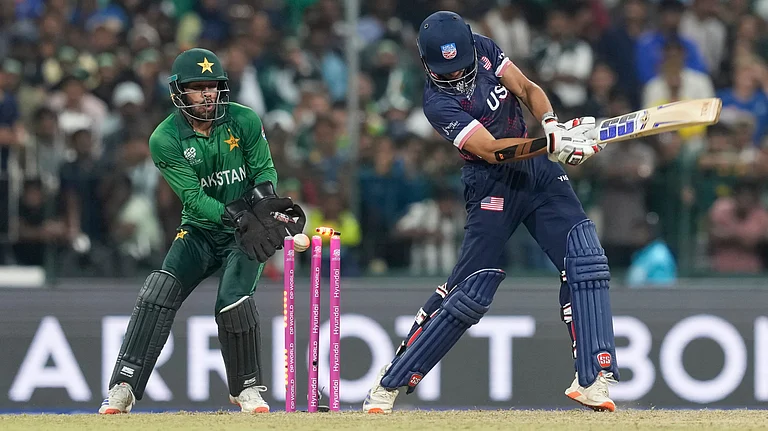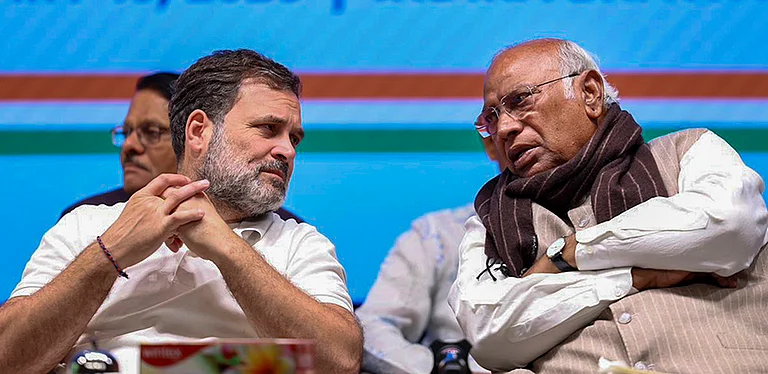From the first slow, unsure steps, like those of the children it was seeking to steady, Spandan has grown uninterruptedly, providing succour and self-esteem to the mentally challenged. "It has been a long, arduous trek for this institution," says Minal Parekh, who heads this integrated development centre for mentally handicapped children. Parekh, who did her masters in social work from M.S. University, Baroda, in 1976 and topped it up with a post-graduate diploma in scientific study of the development of the mentally handicapped, joined the institution when it started in a rented garage of a club in 1976. A brainchild of the local chapter of the Jaycees, the school was an offspring of the Banyan City Jaycees Education Trust. Arvind Zaveri, currently the guiding light of the institution, was the person who took great pains to help build the institution up brick by brick.
Spandan began with a handful of children at a time when there wasn’t much awareness about the problem. Says Parekh: "The mentally challenged were a class apart. Thought to be mad, they were shunned and meant to be hidden, neglected and best forgotten. Times, however, have changed and there is a greater awareness of the need to give love, instill a sense of belonging and train these children to be as normal as they possibly can be. It is no longer considered a stigma. Spandan currently has about 60 children coming regularly and several others coming for therapy and outdoor speciality or sub-speciality treatment."
Now housed in a spacious 10,000 sq feet, specially designed building, the institute includes a professional centre and a school. Children between the age of four and 14 are eligible for admission, while those between 14 and 18 are allowed access to its facilities. It’s a tough job even for the trained staff, since every child has to be handled with care. Each one has very peculiar problems which have to be attended individually. What comes easily to a normal child is a matter of hard work and training and sometimes calls for summoning of immense courage on the part of the mentally challenged. Specialised therapies and exercises help the children gain control over basic bodily functions and also overcome speech problems.
Spandan classes are classified into three categories: education, training and pre-vocation. The institute, which has undertaken a phased programme of development, has now set up a vocational training centre for the mentally handicapped where students between 18 and 25 years are taught file, candle and chalk making. The files are sold for Rs 8.50 a piece and Rs 3 a piece on orders while the chalk is lapped up by schools. Tailoring classes are a recent addition.
Last year, a cerebral palsy wing was added to the institute. There is an out patient department where trained physiotherapists and psychologists put the children through occupational therapy and treatment sessions. Besides, it has a paediatrician coming over twice a week. "We have made considerable progress over the years and the aim is to reach out to the ever-increasing number of the mentally challenged. According to who estimates, the mentally handicapped make up about two per cent of the total population. By this yardstick alone, we have a long way to go to cater to Baroda itself. So we have our work cut out for a long time to come," Parekh says. In case you are interested to join hands with Parekh and her ilk, contact Spandan at 97, Harni-Karelibaug Road, Karelibaug, Baroda 390018, Gujarat. Phone: (0265) 465458.
























